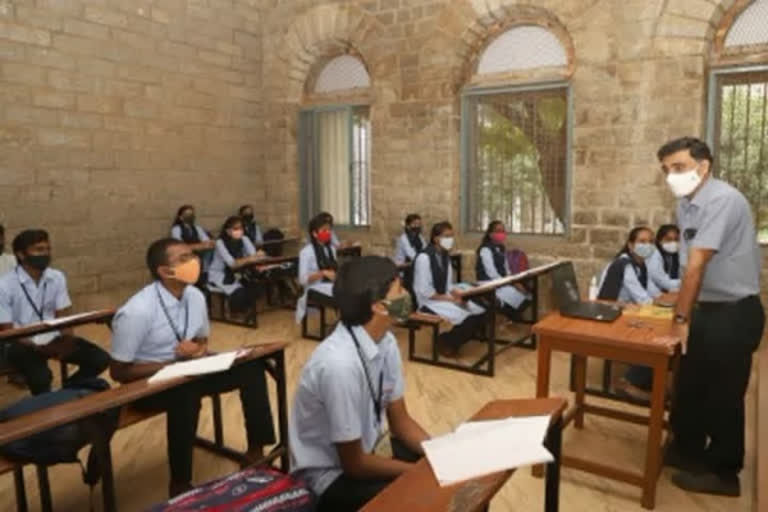New Delhi: The Central Board of Secondary Examination (CBSE) has come up with a block chain technology named 'Academic (BlockChain) Documents' (ABCD) to ensure secure and tamper-proof Board Exam result certificate.
The technology, in collaboration Centre of Excellence for Block Chain Technology of National Informatics Centre under Ministry of Electronics and Information Technology (MeitY), Govt. of India, ensures transparent, tamper-proof and paperless usage of Board Exam result certificate.
The result certificates will be kept in a distributed manner at different locations involving multiple stakeholders, protecting it against any attempt of tampering. This network is established with nodes at Bangalore, Pune and Jaipur. Presently, the Certificate Chain is managed by NIC at its data centres. It also substantially cuts down the time for verification and reduces paperwork.
To begin with, CBSE has made available the digitally signed certificates of Class X and XII for years 2019-2021 and will gradually push the certificates of previous years in the coming months. The digitally signed certificates will be sent to the Block Chain based system creating an additional secure link after the issuance of new certificates by CBSE.
Also Read: CBSE to conduct Term 1 exams for Classes X, XII in mid-November
The Academic BlockChain Document can be used by various educational institutes for verification at the time of admission for higher studies and companies for job offers as well. It can also be used for the online counselling by the institutes, by integrating their systems with plug-in interfaces. The banks and financial institutions can also use this system for sanctioning of educational loans and merit-based scholarship based on the qualifications of the applicants. One can verify the authenticity of the certificates even after several years of issuance. It will provide the trail of all the insertions or changes made on a particular certificate.
How it works
BlockChain Technology records the data in a distributed ledger with ownership of all participating stakeholders. The data is recorded in the chain based on the consensus among the stakeholders and simultaneously replicated at all the locations in the distributed network of Block Chain nodes. This eliminates the dependency on a third party for verification.
Data is linked and stored with cryptographic security so that it is immutable and traceable. The linking of the blocks in the block chain ensures that they cannot be tampered with and the data is trustable as it can be verified across the participating stakeholders.
How to Use
1. All users - students, educational institutions, employers - can verify academic documents by visiting https://cbse.certchain.nic.in or CBSE Main website https://cbse.gov.in .
2. Click on “Verify” menu option on top menu bar available on home page.
3. Select the class from the pop up. Input basic details like Roll No, Date of Birth (in case of Class X only), Exam Year, Exam Type and Student Name (partial) and press ‘Go’ to confirm.
4. Once the details are validated, the marks statement (available presently) of the student is displayed.



